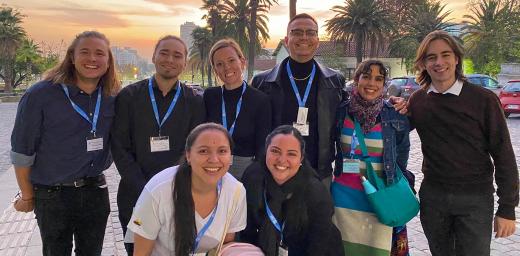Peace and justice issues are pertinent to the church’s mission in Africa
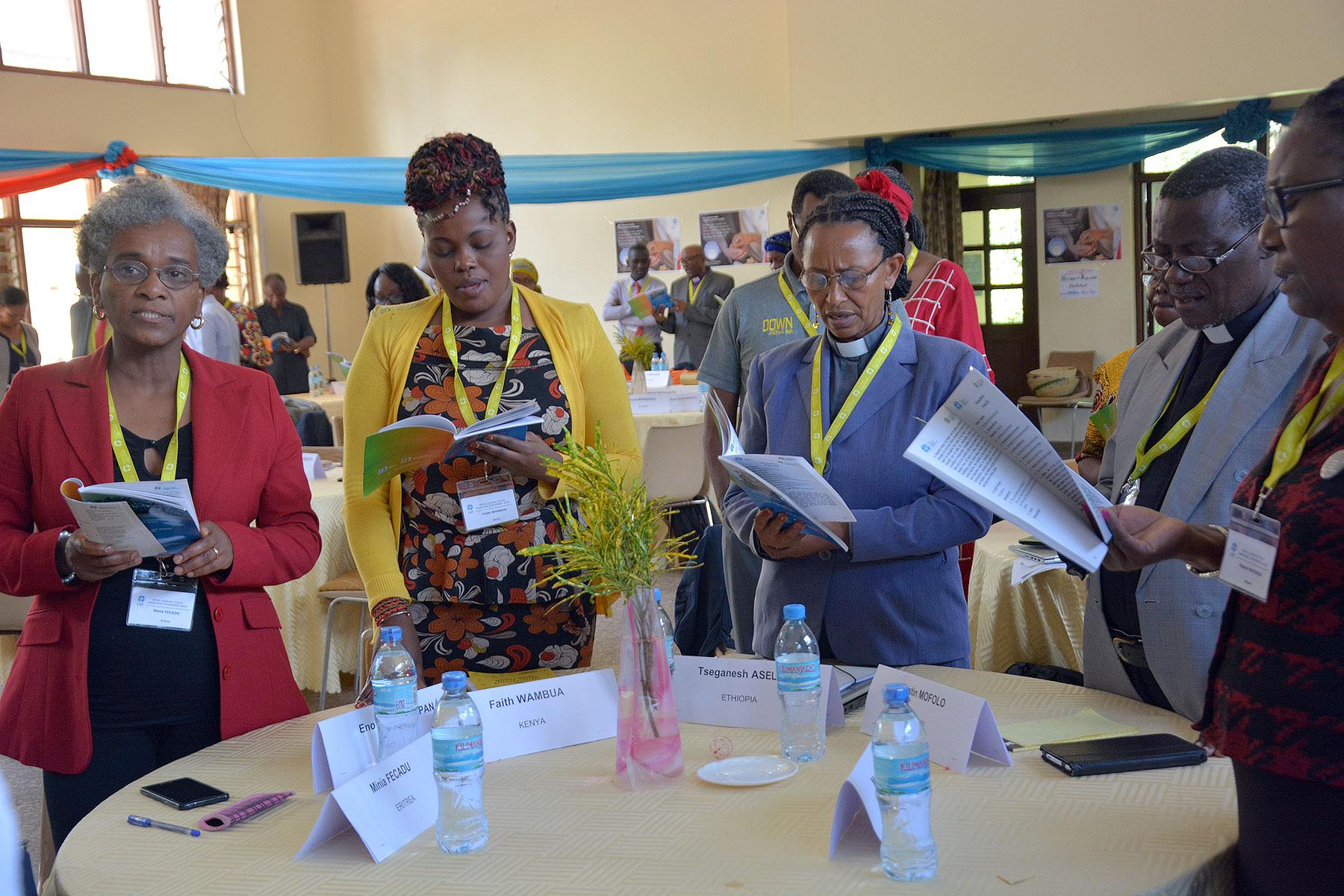
Delegates during the ALCLC, From left: Ms Minia Fecadu, Evangelical Lutheran Church of Eritrea; Ms Faith Wambua, Kenya Evangelical Lutheran Church; Rev. Seganesh Ayele Asele, The Ethiopian Evangelical Church Mekane Yesus, Rev. Justin Mofolo and Ms Mabel Madinga, Evangelical Lutheran Church in Malawi.
Recommendations from regional church leadership consultation
(LWI) – African Lutheran church leaders have said holistic witness for peace and justice on the continent today should focus on issues that directly affect the continent such as the “chain of slavery” associated with forced migration, and include intervention strategies on climate change.
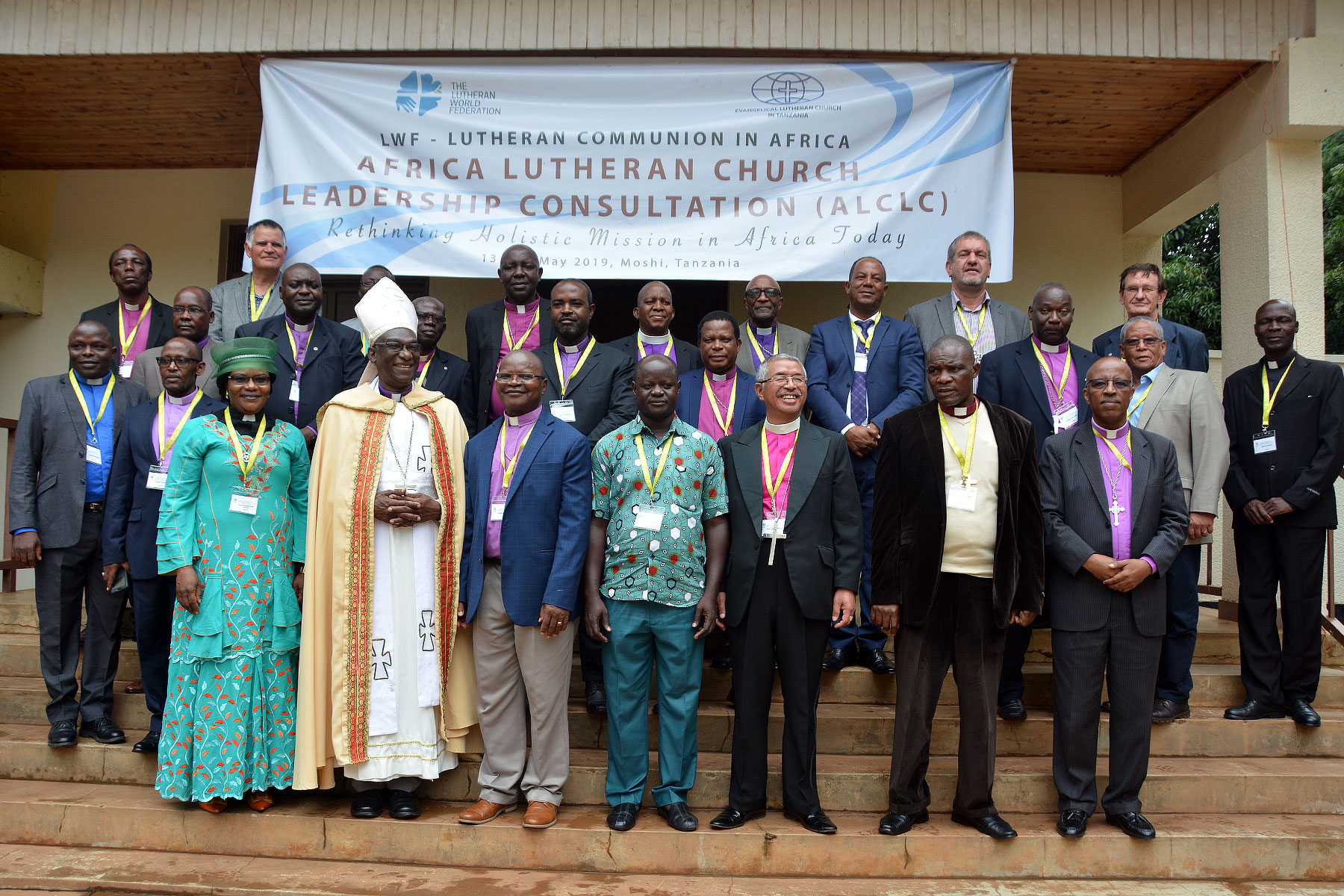
Bishops, Presidents and representatives of heads of African LWF member churches attending the 2019 ALCLC in Moshi Tanzania, seen here with (front row, from left) LWF VIce-President Rev. Dr Jeannette Ada Epse Maina and ELCT Presiding Bishop Dr Fredrick Shoo.
Concluding the 2019 Africa Lutheran Church Leadership Consultation (ALCLC), held 13-17 May, in Moshi, Tanzania, delegates also identified good governance and accountability, youth participation, gender justice, theological education and formation as urgent for the mission of the church today.
Rethinking holistic mission in Africa
The Lutheran World Federation (LWF) gathering was the first meeting of representatives from all the 31 LWF member churches in Africa since the 2017 Twelfth Assembly in Windhoek, Namibia. “Rethinking Holistic Mission in Africa Today” was the theme of the consultation hosted by the Evangelical Lutheran Church in Tanzania.
Referring to the clandestine global human trafficking chain, the delegates identified poverty as one of the primary causes for forced migration. They emphasized that “the struggle against all enslaving and dehumanizing powers is an integral part of the mission of the church in Africa today.” They urged LWF member churches in Africa and globally “to be alert” to this phenomenon, and initiate interventions such as the “Symbols of Hope” project, which offers potential migrants skills and opportunities for a dignified life in their home countries.
The 120 participants comprised bishops, presidents and other representatives of heads of churches, women and youth leaders, LWF Council members, representatives of networks for theological education, confronting poverty and economic injustice and communications, and invited ecumenical guests.
Churches in Africa were encouraged to continue applying the framework for overcoming poverty and economic injustice, which was developed by the region in 2016, saying its inclusive approach ensures livelihoods and the rights of disadvantaged people and communities are protected.
The link between theological education and holistic mission featured prominently at the regional conference. The church delegates expressed disappointment over the constrained financial resources and the significantly decreasing student enrollment that threaten the sustainability of this critical component of holistic mission. They called for the establishment of a regional communication network for theological education actors, institutions and the church leadership in Africa, and the LWF Communion Office.
Discussions at the consultation highlighted the need for accountability and good governance in every level of church life, and the involvement of all stakeholders. The delegates called on church leaders to put in place “participatory structures that do not discriminate against any member based on gender, generational, ethnic, racial, and or social status.” They also urged churches to consider introducing succession planning and talent management processes to avoid unnecessary conflicts that occur upon change of leadership.
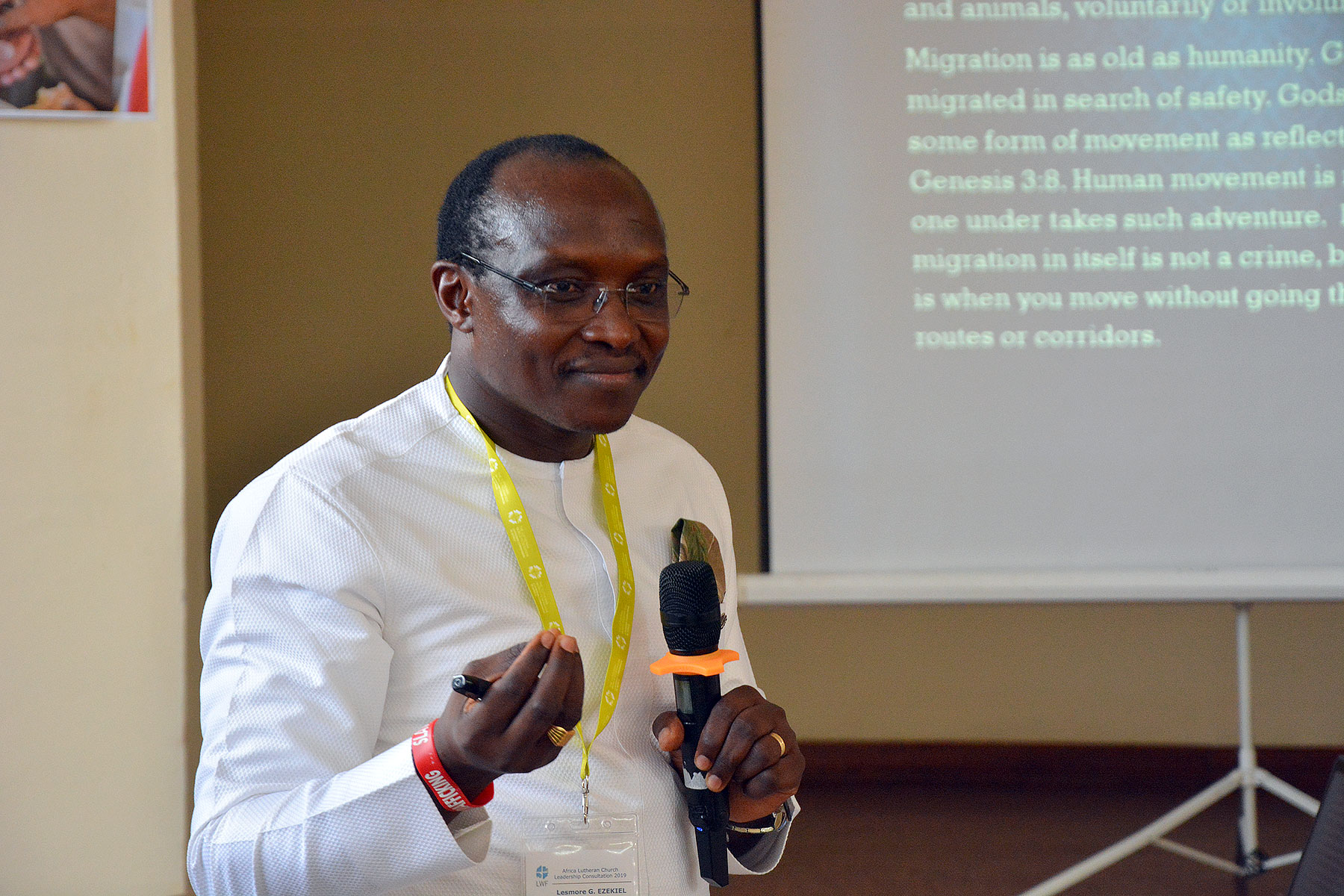
Rev. Dr Lesmore G. Ezekiel, The Lutheran Church of Christ in Nigeria, speaking on"Mission as the Church’s Prophetic Voice," during the May 2019 Africa Lutheran Church Leadership Consultation in Moshi, Tanzania.
The ALCLC noted that the LWF Gender Justice Policy had become an important resource for the empowerment of women and girls in both church and society. They called for its adoption into church constitutions, the involvement of men including work on transformative masculinities, and that churches directly address sexual gender-based violence in the church.
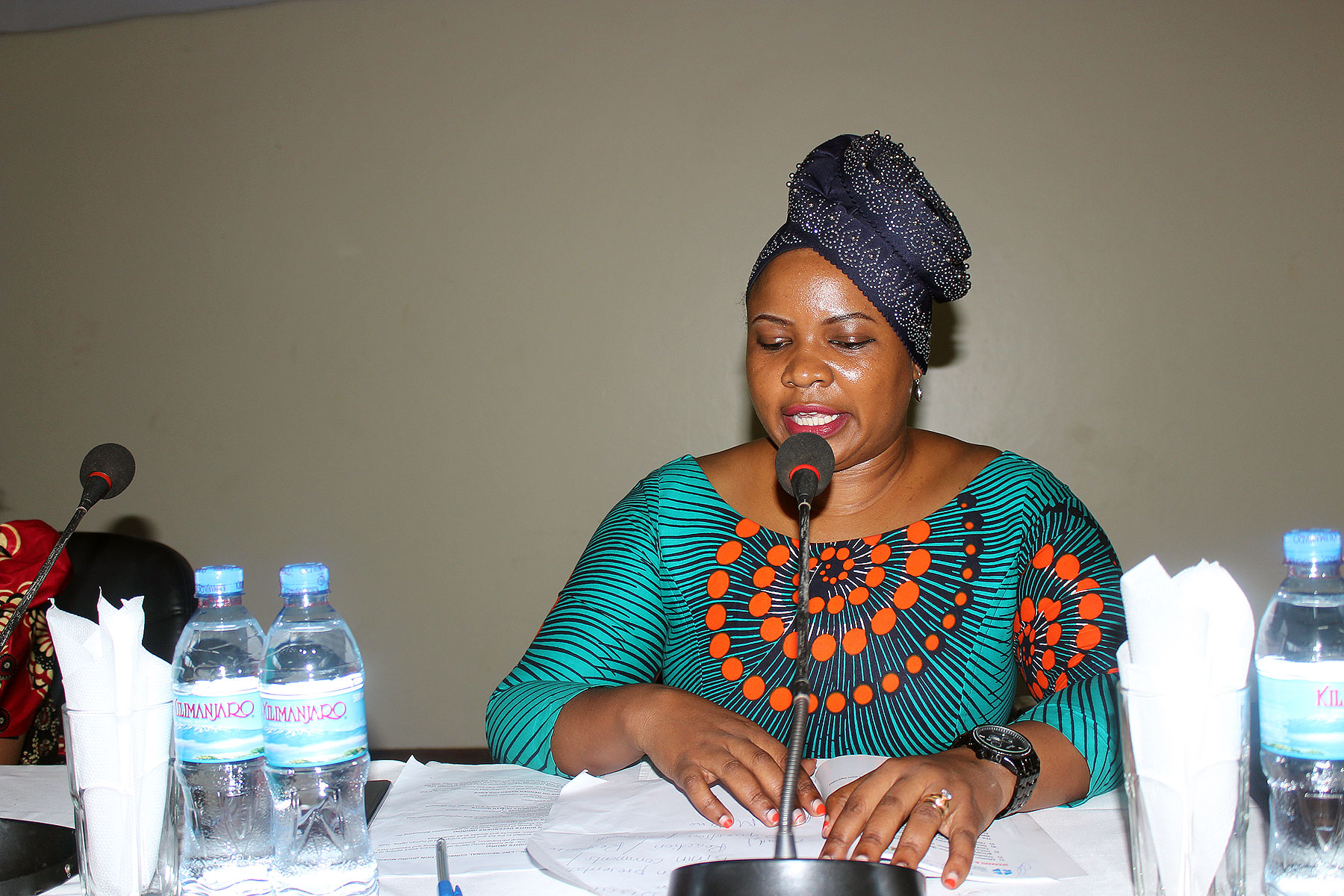
Ms Faustina Nillan Manyangu, Evangelical Lutheran Church in Tanzania, leads a plenary discussion on recommendations from the women's pre-meeting, which included a call for gender-just policies in LWF member churches in Africa.
The participation of youth in the church was highlighted at the ALCLC, though recommendations from the youth pre-meeting and plenary discussions. The delegates affirmed that “youth form the present and the future of the church and the seeds of revival and transformation,” and the mentoring and leadership development processes ought to include young people. They urged churches to empower youth to be more involved in different church ministries, promote more youth-friendly methodologies of worship and encourage more young people to pursue theological education.
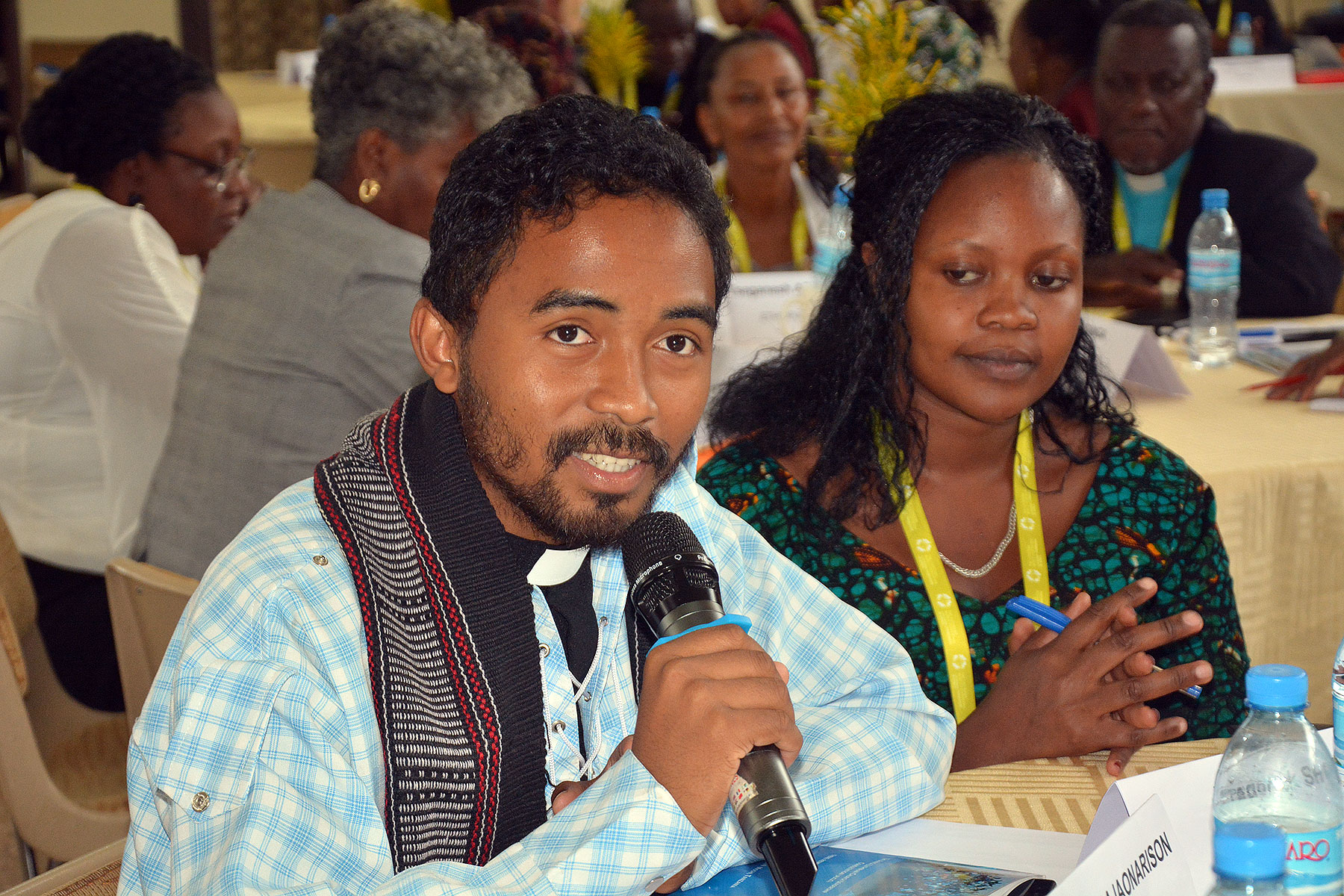
Youth delegates (from left) Rev. Rado Salomon Rajaonarison, Malagasy Lutheran Church (left) and Ms Giftiel Abraham Mshana, Evangelical Lutheran Church in Tanzania, co-moderate table talks on church revival, leadership succession policies, and accountability and transparency.
Worship was an important part of the church leadership consultation, which began with a Eucharistic service. Participants took part in daily morning Bible studies, mid-day prayer and evening devotions.
Holistic mission (proclamation, diaconal service and advocacy) will not happen from the top - it has to happen at grass root level, where the people are, where the Christians live.
In his sermon during the closing worship service, Bishop Horst Müller, Evangelical Lutheran Church in Southern Africa (N-T) focused on the responsibility of clergy toward laity in ensuring the presence and vibrant witness of churches in the world. Reflecting on 1 Timothy 3: 14-15, he emphasized that “holistic mission (proclamation, diaconal service and advocacy) will not happen from the top - it has to happen at grass root level, where the people are, where the Christians live.” The role of church leaders, he said, is “to create space for it to happen, by giving permission to laity to be active, not only in caring but also in sharing the gospel.”
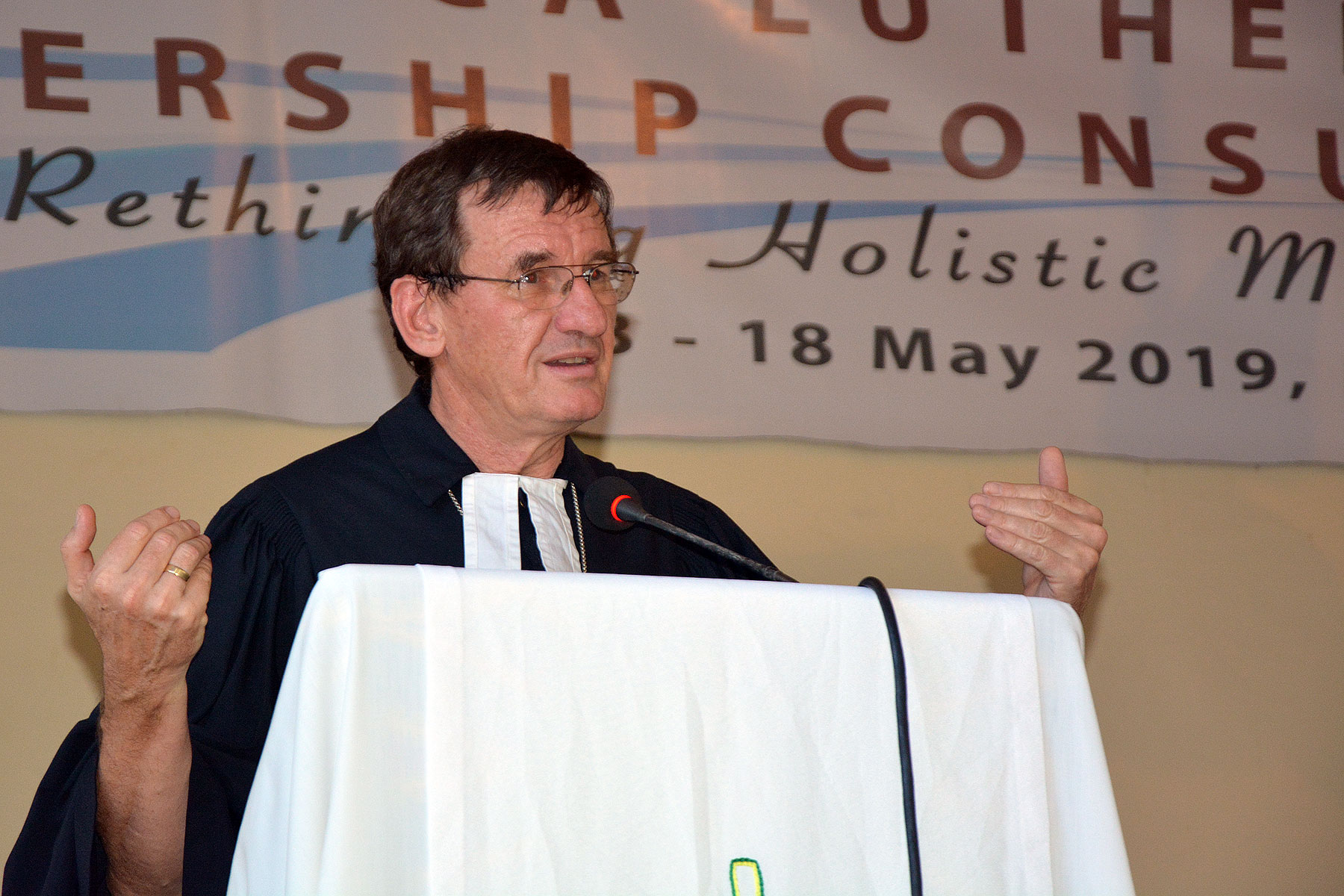
Bishop Horst Müller, Evangelical Lutheran Church in Southern Africa (N-T), preaching during the closing worship service of the ALCLC in Moshi, Tanzania.
Müller, who is also president of the Lutheran Communion in Southern Africa, reminded those called to the ordained ministry that they should “not hinder and belittle” the lay people but should instead equip and encourage them. The church’s vibrant witness, he added, “does not happen through glorious processions of office bearers,” but through the witness of millions of Christians living out what they believe. He urged church leaders to be “humble, daring, and obedient enough to allow Christ to bypass our authority and our status.”



